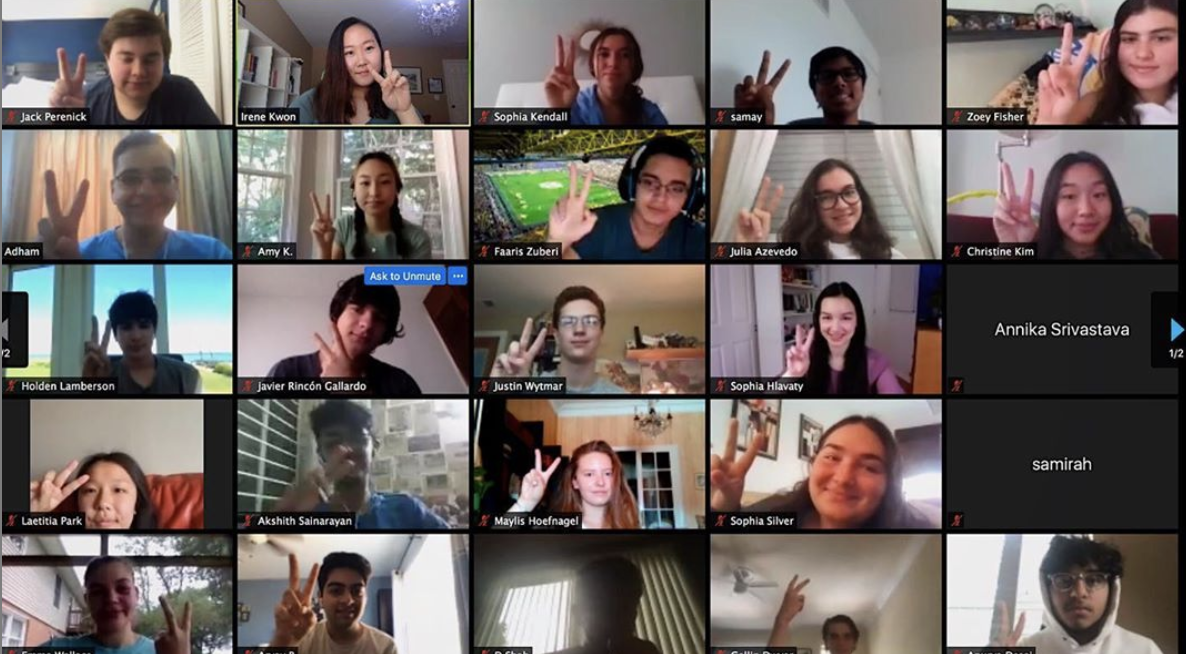A Better Debate World: Don’t Eliminate Online Tournaments
by Faith Hanson
High school debate is its own world. A world that has since been moved all online amidst the chaos of the pandemic. Accompanying the transition to Zoom has been a transition to a better version of debate.
As the coronavirus cases begin to lessen and the world returns to so-called normalcy, it is inevitable that many debaters will be itching to return to in-person tournaments as well. The yearning to return to normal makes sense; in-person debate has a large appeal. Traveling to tournaments can serve as a bonding experience for teams. Many might argue that meeting in-person allows for better socialization. In-person competition even allows for teams to read body language and connect with judges. That said, simply returning to in-person debate would be a missed opportunity to create a better environment for competitors everywhere. Online debate has unveiled a lot of inequalities about debate that we were all seemingly blind to before (or not necessarily blind to, but that we chose to ignore in blissful oblivion).
With all of the aforementioned benefits to in-person debate come equally powerful drawbacks. Traveling comes with travel costs, which are expensive. Meeting in person allows for ruder comments behind the scenes, and even harassment. Holistically, online debate offers a cheaper, safer, and more equitable space to compete.
Online debate is inarguably less expensive because it eliminates the travel costs for tournaments. Thus, many teams who could not afford to compete because of travel costs now have the opportunity to do so. This increase in participation fosters a more inclusive debate community. It pushes back on the wealth disparity that undoubtedly shows up in other aspects of debate. For example, some of the quickest ways to climb the figurative debate ladder are easily accessible to the wealthy competitors. Debate tutors or club teams can cost up to thousands of dollars a year. Additionally, prep groups, which are notoriously exclusive, are dominated by private school attending males. Though online tournaments do not completely solve for the wealth gap in debate, they do help close it, and any minimization of this gap—regardless of how small—is worth fighting for.
As someone who has only competed in debate online, I am by no means the most qualified person to speak on the harassment that took place while tournaments were in-person. However, I am able to attest to the safe environment fostered by online tournaments. I am fortunate to have never felt discriminated against or uncomfortable in a Zoom, along with many other of my female teammates who have shared prior experiences of sexism in debate. Too many times, girls in debate are harassed, oversexualized, or simply held to different standards. A teammate of mine shared a sickening encounter she had at an in-person tournament: “After my partner and I beat two established male debaters with reputations for being sexist, I overheard one of them talking about me outside the room, claiming I must’ve done something vulgar with the judge in order to win.” This kind of commentary made by these debaters is certainly not the first occurrence, but rather one of many.
Problematically, girls in debate have also struggled with finding the right way to present themselves to a judge. Public forum debater Stacey Kang shares that “girls in debate often walk a fine line between being ‘overly aggressive’ or ‘too passive’… and this line we walk is not one our male counterparts have to walk with us.” She furthers that this struggle is “magnified” when in-person tournaments facilitate a space where “girls are judged for what they’re wearing, like if their skirt is too high.” Conversely, online tournaments, for the most part, eradicate a lot of the issues surrounding clothing and perception. This is why many debaters, including Stacey, feel that online tournaments have helped to reduce the harassment and double standard that was so prevalent in in-person tournaments.
An additional aspect of online debate that has left competitors feeling more comfortable is the ease with which competitors can share pronouns. Competitors have the ability to add their pronouns to their Zoom name and online debate profile. Furthermore, many services used by debate tournaments for scheduling, like Tabroom, now have the ability to send out team members’ pronouns at the same time they send the text or email for the coin toss. Stacey and a second debater who’d prefer to remain anonymous agree that “new features like these only add to the overall positive atmosphere that is online debate.”
Of course, the switch to online tournaments has not resulted in a complete removal of all things toxic. Clearly, there is still plenty of room for improvement both off and online. Nevertheless, the elimination of all online debate tournaments would be a disservice to the community. In-person debate and online debate do not have to be mutually exclusive. With this in mind, as we begin to transition back to in-person tournaments, there should at the very least be an option for students to continue competing online. Collectively, online debate has shown us that a refreshing, superior version of the debate world exists.
